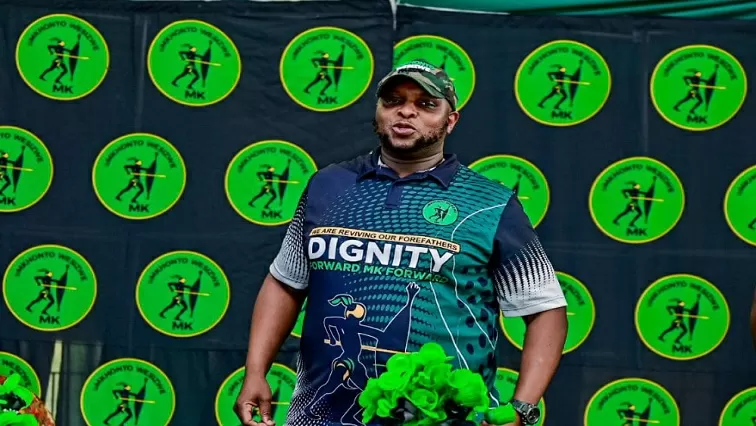On April 27th, South Africa celebrated its 25th Freedom Day, marking the anniversary of the country’s first democratic elections in 1994. This day is meant to symbolize the end of apartheid and the beginning of a new era of freedom, equality, and opportunity for all South Africans. However, while many people across the country were celebrating, Floyd Shivambu, the Deputy President of the Economic Freedom Fighters (EFF), had a different perspective on the significance of this day.
In an interview with a local news outlet, Shivambu stated that Freedom Day means little to him and many other South Africans, as they continue to struggle with basic services such as water, electricity, and sanitation. He argued that the majority of the population, especially those living in townships and rural areas, are still living in dire conditions, with little to no access to these essential services. This, he believes, is a clear indication that the promises of freedom and equality made during the transition to democracy have not been fulfilled.
Shivambu’s comments have sparked a debate among South Africans, with some agreeing with his sentiments and others criticizing him for being negative on a day that is meant to be a celebration of the country’s progress. However, regardless of one’s political stance, it is important to acknowledge the truth in Shivambu’s statement. While South Africa has made significant strides since the end of apartheid, there are still many challenges that need to be addressed in order to truly achieve the vision of a free and equal society.
One of the main issues that Shivambu highlighted is the lack of access to basic services. It is unacceptable that in a country with such vast resources, a large portion of the population still does not have access to clean water, electricity, and proper sanitation. This not only affects people’s quality of life but also hinders economic growth and development. Without these basic services, it is difficult for people to improve their living conditions and break the cycle of poverty.
Another issue that Shivambu raised is the high levels of unemployment and inequality in the country. Despite the government’s efforts to create jobs and reduce inequality, the reality is that many South Africans are still struggling to make ends meet. The unemployment rate in South Africa currently stands at 27%, with youth unemployment at a staggering 55%. This not only affects individuals and their families but also has a negative impact on the country’s economy and social stability.
In addition to these challenges, there are also ongoing issues such as corruption, crime, and inadequate education and healthcare systems that continue to plague the country. These issues not only hinder the progress of South Africa but also prevent its citizens from fully enjoying the benefits of freedom and democracy.
However, despite these challenges, it is important to acknowledge the progress that has been made since the end of apartheid. South Africa has a strong constitution that protects the rights of its citizens and promotes equality. The country has also seen improvements in areas such as infrastructure, access to education, and healthcare. These achievements should not be overlooked, and they serve as a reminder that change is possible and that South Africa is moving in the right direction.
On this Freedom Day, it is crucial for all South Africans to reflect on the past, acknowledge the present challenges, and work towards a better future for all. It is not enough to simply celebrate the achievements of the past 25 years; we must also recognize the work that still needs to be done. As citizens, we have a responsibility to hold our government accountable and demand that they fulfill their promises of freedom and equality for all.
In conclusion, while Floyd Shivambu’s comments may have caused controversy, they have also shed light on the reality that many South Africans are still facing. Freedom Day should be a time for celebration, but it should also be a time for reflection and action. Let us use this day as a reminder of the progress we have made, but also as a call to action to address the challenges that still exist. Only then can we truly say that we have achieved the vision of a free and equal South Africa for all.


